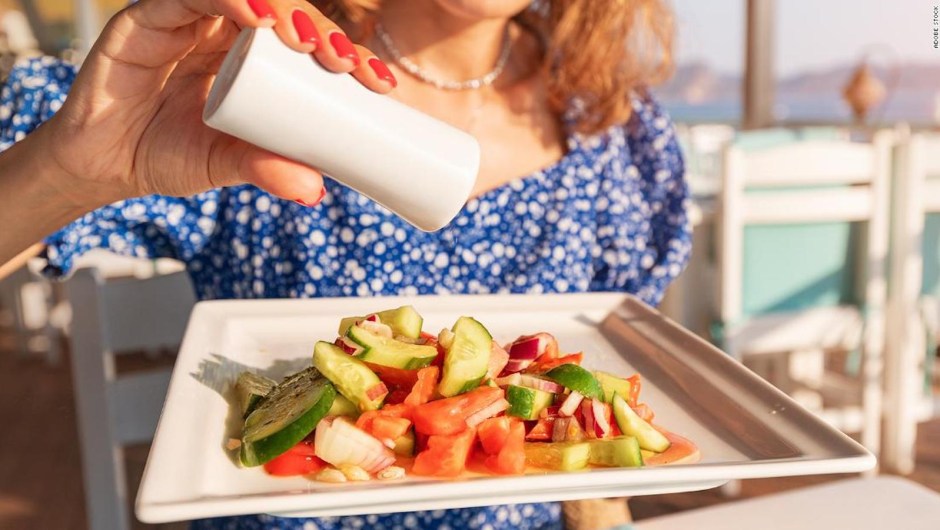Avoid adding salt to your food at the table, experts recommend.
(CNN) --
On second thought, maybe it's best not to pass the salt.
Adding salt to your food at the table is associated with a shorter life expectancy and an increased risk of premature death, according to a new study.
The study looked at more than 500,000 people in the UK Biobank who answered a questionnaire between 2006 and 2010 about their salt usage habits and how often they added it to their food.
Before you start combing through all your favorite recipes, keep this in mind: The researchers only looked at how much salt was added
AFTER
the meals in question were cooked, according to findings published in the European Heart Journal in July.
The researchers followed up with the participants about nine years later and found that the more salt people added to their meals, the greater their chance of premature death.
However, people who consume high levels of salt could reduce their risk by eating more fruits and vegetables, according to the study.
The American Heart Association recommends that adults consume no more than 2,300 milligrams of salt per day, but notes that the "ideal limit" is 1,500 milligrams of salt per day.
Eating too much salt can raise your blood pressure, which in turn can lead to heart disease, stroke and kidney disease, the heart association said.
advertising
Reducing salt intake could give you more years of life
The UK National Health Service recommends that adults limit their sodium intake to one teaspoon of salt per day.
There's a long history of scientific research showing that a high-salt diet is risky, but this study adds a new level of caution against adding more to your plate, said study lead author Lu Qi, a professor of epidemiology at the School of Salt. of Public Health and Tropical Medicine at Tulane University in New Orleans.
"More evidence, especially from clinical trials, is needed before the public takes any action," he said.
"However, our findings are in line with previous studies that consistently show that high sodium intake is negatively associated with various health outcomes such as hypertension and cardiovascular disease."
Five tips to reduce your salt intake
So you can go further to reduce salt intake
Even if you don't add salt to your own dish, you may be consuming more sodium than you should.
A 2020 meta-analysis of 133 randomized clinical trials on reducing salt intake found strong evidence that reducing dietary sodium lowered blood pressure in people with existing hypertension, and even those not yet at risk.
One of the main culprits for the high levels of sodium in our diet?
Manufactured foods, which often use salt for flavor, texture, color, and preservation.
More than 70% of the sodium Americans eat comes from what the food industry adds to products that are then bought in stores or restaurants, according to the US Food and Drug Administration (FDA). ).
"Most of my patients don't add salt at the table, but they don't realize that bagels, canned vegetables, and chicken breasts are among the worst culprits (of high sodium) in the US." said Dr. Stephen Juraschek, an assistant professor at Harvard Medical School who researches sodium and hypertension.
Juraschek was not involved in either the Biobank study or the 2020 meta-analysis.
Beef off the table in US households: consumers swap it for chicken amid inflation
But salt makes everything taste so good, you may be thinking.
However, there are strategies to maintain a vibrant palate and create appealing dishes with less salt, said Carly Knowles, a registered dietitian who is also a private chef, licensed doula and author of "The Nutritionist's Kitchen" cookbook.
Knowles recommends cooking at home — where you have more control over the salt shaker while preparing food — more often, reading product ingredients, substituting salt-free herb and spice blends, and focusing your diet on minimally processed foods.
Foods

